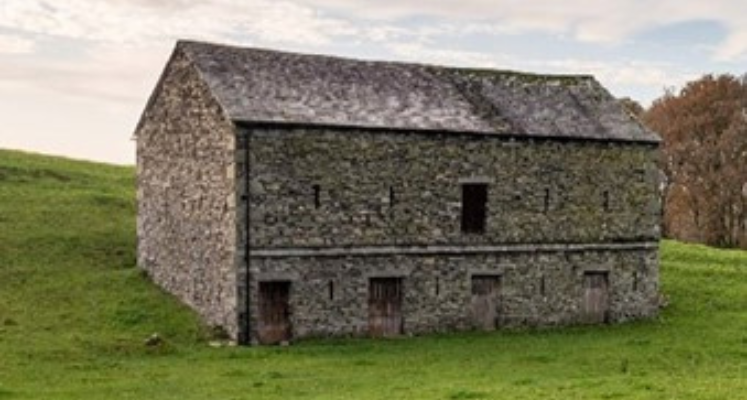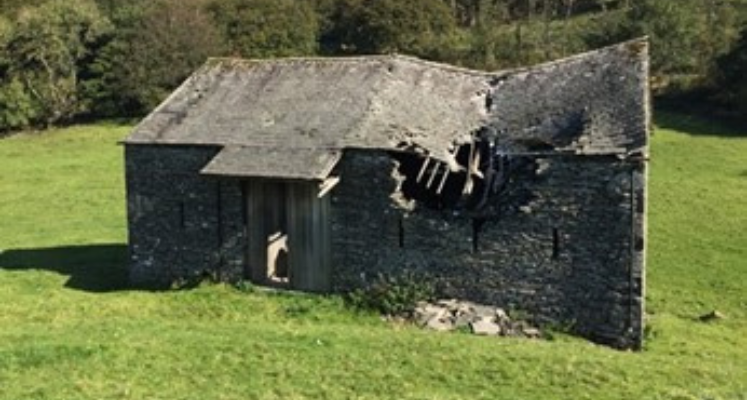
The actions taken by many organisations working collaboratively to look after, protect and enhance the Lake District are being celebrated in the Lake District National Park Partnership’s annual progress report.
The Partnership brings together 22 organisations from the public, private, community and voluntary sectors with the shared goal of delivering positive change in five key areas:
Dr Celia Caulcott, Chair of the Lake District National Park Partnership is pleased with the progress made by the Partnership, but she knows there is always more to be done.
She explains: “As a National Park and complex World Heritage Site, it takes many people coming together to care for such a special, cultural landscape. This report explains why it is vital for our partners and communities to work together for the benefit of the Lake District.
It is important to recognise the significant successes achieved so far through our partnership approach, but we should also be open and honest about areas where we know there is more work to do. We can be proud of our progress so far, and I hope that by taking stock of our collective achievements it gives us all a renewed appetite to continue to reach our shared goals to improve the Lake District.’’
Some of the successes highlighted in the report are:
Taking action on climate
The report cites good progress being made by the Partnership in a Cumbria-wide effort to be the first net zero carbon county in the UK, by 2037.
One project highlights that about 100 Cumbrian businesses received green grants totalling £1.25m to reduce their carbon footprints from the Low Carbon Lake District Fund via The Lake District Foundation.
Supporting farming businesses
Farmers are supported by the Partnership through the Farming in Protected Landscapes programme. Over 220 farms have benefitted from £1.5m of funding to date for projects that address themes of nature, people, place, and climate. Now in its third year, the Partnership is looking forward to supporting another year of innovation and ideas from the farming community.
A successful pilot has already conserved 10 traditional barns. The DEFRA-funded scheme, jointly managed by Historic England and Natural England and led by the Lake District National Park Authority, will see more barns restored in the coming year.
Supporting nature recovery
The Partnership is acutely aware of the importance of helping nature to thrive and recover with a number of projects in place to increase biodiversity in a way that is sensitive to the continuing viability of traditional farming.
Examples include the Upper Duddon Landscape Recovery Project where farmers, landowners and environmental organisations are coming together to achieve nature recovery on a landscape-scale. The project should secure a more sustainable and resilient future for upland fell farms in the valley and has already led to new local jobs.
The Partnership appreciates that the local knowledge, care and dedication of farmers and local communities is essential in creating a sustainable and bio-diverse future. Community interest companies (CICs) are a positive example of communities in the Lake District taking action, which are welcomed and supported by the Partnership.
The report spotlights two CICs; the Ullswater Catchment CIC, created to address the effect of climate change-related flood risks, bringing locals, farmers, land managers and flood risk experts together to find solutions and West Lakeland CIC, a farmer-led nature-recovery partnership.
Visitors jump on board
Highlighted in the report are the return of shuttle buses linking two of the National Park’s most popular hiking and walking destinations during the summer. The Partnership introduced the Wasdale Shuttle route, which connects Ravenglass station with a pop-up car park in Nether Wasdale, also the Buttermere Shuttle linking Cockermouth directly with Buttermere.
Another Partnership initiative - Miles without Stiles - is helping to make the Lake District more accessible. The addition of a 50th route means people with limited mobility, including powered-wheelchairs and families with prams and pushchairs, can now reach Alfred Wainwright’s first fell at Orrest Head. A further exciting new route is the recently opened West Windermere Way along the western shore of Lake Windermere.
Read our Annual Lake District National Park Partnership report.
Read our full list of partners

Photos show: Arklid Barn, Nibthwaite, before and after repairs. Between 2019 and 2022, 10 barns were conserved as part of a government-funded pilot project jointly managed by Historic England and Natural England, with the Lake District National Park Authority leading delivery.
-ends-
Notes to editors:
For further information please contact the Communications team at the Lake District National Park: comms@lakedistrict.gov.uk
More information about the National Park can be found on our website www.lakedistrict.gov.uk
In July 2017, the Lake District National Park was awarded UNESCO World Heritage Site status in the cultural landscape category.
The Lake District is one of 15 National Parks. The others are Bannau Brycheiniog (formerly Brecon Beacons), the Cairngorms, Dartmoor, Exmoor, Loch Lomond and Trossachs, Northumberland, North York Moors, Peak District, Pembrokeshire Coast, Eryri (formerly Snowdonia), the Yorkshire Dales, the Broads, the New Forest, and the South Downs.